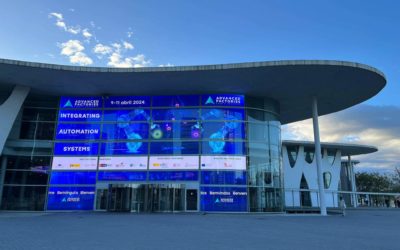It is pointless to have the best technology partner or the latest in MES solutions if your company overlooks the creation of an internal team to support the implementation and deployment of the software. Below, we highlight the four types of professionals that your company must have to ensure the success of your project.
As in any digitization project, the success of the implementation of an MES solution depends on many factors. The choice of a good technology provider is one of them, but the involvement and commitment of the customer is equally or even more important.
In fact, one of the key tasks that any industrial company must undertake at the beginning of its project is the creation of an internal team, which should consist of an IT manager, a project manager, key-users and end-users.
The selection of these people is fundamental to the success of the MES software implementation process and that is why we have dedicated this article to review the role and skills of each of these professionals.
Roles and skills of the internal team in an MES solutions project
IT manager
The IT manager is responsible for the overall maintenance and management of a company’s information systems. Some of his responsibilities include: recommending appropriate software solutions, providing optimal tools for data and information management, and suggesting suitable security strategies.
In an MES implementation project, it is necessary for the IT manager to have the following competencies:
- Complete knowledge of MES system operation and architecture.
- Strong background in computer science and advanced technical system administration skills.
- Manufacturing experience and understanding of common industry processes and challenges.
- Ability to make decisions based on data and trends, and be accountable for their actions.
- Communication skills to collaborate effectively with other departments.
- Ability to lead projects and teams.
- Aptitude for learning new skills and technologies to drive continuous improvement in the project.
Project manager
The project manager is in charge of coordinating the whole process of implementation and deployment of the MES solution within the company.
Especially in cases that require the collaboration and involvement of several departments such as Production, Quality or Maintenance, this professional must be involved in the project from the beginning to the end, acting as an intermediary and single point of contact between the implementing party and the different key-users.
When choosing the project manager, it is very important to make sure that he/she meets these requirements:
- In-depth knowledge of the organization, its production processes and how these relate to an MES system.
- Ability to give top priority to the project over any other responsibility in the organization.
- Leadership ability to guide the team in meeting project objectives.
- Ability to communicate effectively with team members, other departments and/or vendors, and to manage the expectations of everyone involved in the project.
- Technical and in-depth knowledge of the MES system and associated technologies, as well as experience in their implementation.
- Ability to plan and organize the project effectively, including setting clear milestones, timelines and budgets.
- Ability to identify problems and resolve them efficiently, minimizing the impact on the project.
- Ability to adapt to changes and challenges that may arise during the project and adjust planning and resources accordingly.
- Ability to manage risks associated with the project, applying preventive and contingency measures.
Key-users
Key-users also play a decisive role in the choice and implementation process of MES software. As representatives of certain departments, they provide knowledge and expertise in defining the features and functionalities of the new system and, above all, reinforce the acceptance of the MES solution among the end-users.
These are some of the skills that a good key-user should have:
- In-depth knowledge of production processes and how they relate to the MES system.
- Strong knowledge of the MES solution, including its operation, configuration, data mining capabilities and objectives.
- Ability to communicate effectively with other departments and mediate between end-users and the IT team.
- Ability to identify and resolve problems with the MES system and help other users to do the same.
- Training and coaching skills to guide other users in the use of the MES software.
- Willingness to work with the IT team and other departments with the ultimate goal of continuously improving the MES system and maximizing its effectiveness.
End-users
Finally, we must not forget the end-users or, in other words, the users who will work with the MES platform on a daily basis.
These are people who do not usually have a great deal of technical knowledge and who are sometimes quite reluctant to introduce new systems in the factory. However, as we point out in this article, with good change management, the vast majority of companies successfully overcome this challenge.
Below, we point out those characteristics of an end-user that favor the implementation and deployment process of an MES solution:
- Knowledge of the manufacturing process and MES system objectives.
- Basic computer skills and experience using computer systems.
- Attention to detail when entering and reviewing data into the system.
- Ability to work as part of a team and with other departments, as well as to actively collaborate in problem solving.
- Flexibility to adapt to changes in the system and production process.
- Ability to identify, analyze and communicate problems effectively and efficiently to their managers.
If you want to implement a MES system in your company, but you do not know where or how to start, contact us through this form. We have a great team of professionals who can help you solve all your doubts about the implementation and deployment process of the Mapex platform in your factory.



